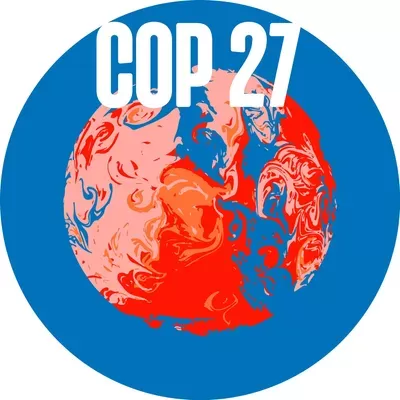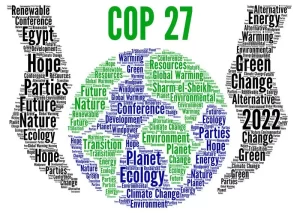What are the outcomes of COP27?

The final curtain went down for COP27 on the 20th of November 2022 achieving breakthrough agreements concerning climate change. COP27 was an opportunity to move the needle on all governments, private sector, civil society, and communities to champion for responding to the global emergency of climate crisis, and for supporting countries to realize their pledges on climate action.
COP27 President Sameh Shoukry mentioned: “Despite the difficulties and challenges of our times, the divergence of views, level of ambition or apprehension, we remain committed to the fight against climate change…”
What is exactly COP27?
COP27 refers to the 27th United Nations Climate Change Conference held from 6th of November until the 20th of November 2022 in Sharm El Sheikh, Egypt. It took place under the presidency of Egyptian Minister of Foreign Affairs, Sameh Shoukry, and brought together more than 45,000 participants – environment ministers, civil servants, negotiators, businesses, and members of the public-to share ideas, solutions, and build partnerships and coalitions. At the same time, indigenous peoples, local communities, cities and civil society, including youth and children, showcased how they are addressing climate change and shared how it impacts their lives.
It was the first time ever that children had an official space at a UN climate change conference in Egypt, with UN Climate Change’s Executive Secretary promising to urge governments to not just listen to the solutions put forward by young people, but to incorporate those solutions in decision and policy making. The newly-announced Children and Youth Pavilion enabled them to hold discussions and policy briefings. It was a unique chance to amplify the voices of young people and drive action on global climate policies vital to securing our future by addressing urgent issues of all fields.
What was finally agreed by the Conference?
After two weeks of intense discussions, the members of COP27 reached crucial final decisions dedicated to the prevention of more consequences of the environmental crisis and to the mitigation of the already existing impacts that sound the alarm for action.
More specifically, COP27 will go down in history as the UN climate change conference where the most remarkable deal was achieved after crucial climate talks: a global fund for “Loss and Damage”. It was an issue that dominated this year’s summit. But what is the significance of this decision? It refers to the financial assistance from nations, who are the greatest contributors to climate change, to developing countries stricken by the most severe consequences of climate change. After decades of pushing, this is a momentous victory for more than 130 developing countries, who were demanding for a new fund to help them save lives and livelihoods by coping with the irreparable damage of floods, drought and other climate impact.
Not only that, but also COP27 resulted in countries delivering a package of decisions that reaffirmed their commitment to the Paris Agreement, the goal of which is to limit global temperature rise to 1.5 degrees Celsius above pre-industrial levels. The package also strengthened action by countries to cut greenhouse gas emissions and adapt to the inevitable impacts of climate change, as well as boosting the support of finance, technology and capacity building needed by developing countries.
At the same time, mitigation was an important topic to be discussed.
A work programme was launched in Sharm el-Sheikh, aimed at urgently scaling up mitigation ambition and implementation. The work programme will start immediately following COP27 and continue until 2030, with at least two global dialogues held each year.
The final decision text recognizes that the unprecedented global energy crisis underlines the urgency to rapidly transform energy systems to be more secure, reliable, and resilient during this critical decade of action.
Finally, as António Guterres- the secretary-general of the United Nations- mentioned during the Conference:
“Justice and ambition require the essential voice of civil society.
The most vital energy source in the world is people power.
That is why it is so important to understand the human rights dimension of climate action.…..
It will take each and every one of us fighting in the trenches each and every day.
Together, let’s not relent in the fight for climate justice and climate ambition.
We can and must win this battle for our lives.”


The European Commission’s support for the production of this website does not constitute an endorsement of the contents, which reflect the views only of the authors, and the Commission cannot be held responsible for any use which may be made of the information contained therein.
Project Number: 2021-1-ES02-KA220-YOU-000028702